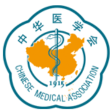Nanosystems for Controlled Delivery Applications
Join by H.323: 162.255.37.11 (US West)
Opening Remarks and Introduction (3 min)
Prof. Qian Wang
Department of Chemistry and Biochemistry, University of South Carolina, USA(wang263@mailbox.sc.edu)
Lecture 1: (20 min, 15 + 5 Q&A)
Nano-ERASER: A novel intracellular protein degradation approach and its application
Professor Peisheng Xu
School of Pharmacy, University of South Carolina, USA (xup@cop.sc.edu)
Lecture 2: (20 min, 15 + 5 Q&A)
Injectable polymeric nanoparticles for treating eye diseases

Dr. Qingguo Xu
Deptment of Pharmaceutics, Virginia Commonwealth University, USA (qxu@vcu.edu)
Lecture 3: (20 min, 15 + 5 Q&A)
Ocular Delivery of Nanoparticles: Challenges of traditional approaches and advantages of Microneedles approach
Professor Thakur Raghu Raj Singh
School of Pharmacy, Queen's University Belfast, UK (r.thakur@qub.ac.uk)
Lecture 4: (20 min, 15 + 5 Q&A)
Brain disease nano gene drug delivery strategies: From nature to "NATURE"
Professor Xin Zhang
State Key Laboratory of Biochemical Engineering, Institute of Process Engineering,
Chinese Academy of Sciences, China (xzhang@ipe.ac.cn)
Lecture 5: (20 min, 15 + 5 Q&A)
Engineering Dendrimers for Drug and Gene Delivery
Professor. Hu Yang
Linda and Bipin Doshi Department of Chemical and Biochemical Engineering,
Missouri University of Science and Technology, USA (huyang@mst.edu)
Organizing Committee (Alphabetically):
Prof. Xu Cao
Department of Orthopaedics, Johns Hopkins University, USA
Prof. Xiaodong Guo
Department of Orthopaedics, Wuhan Union Hospital, China
Prof. Bin Li
Institute of Orthopaedics, Soochow University, China
Prof. Zengwu Shao
Department of Orthopaedics, Wuhan Union Hospital, China
Prof. Qian Wang
University of South Carolina, USA
Dr. Zhidao Xia
Swansea University Medical School, Swansea, UK
Prof. Weihua Xu
Department of Orthopaedics, Wuhan Union Hospital, China
Dr. Peisheng Xu, Professor of Pharmaceutics in the Department of Drug Discovery & Biomedical Sciences at the University of South Carolina College of Pharmacy. The primary interests of his lab are the design and synthesis of biomaterials and exploring their biomedical applications. The long-term goals of his research are to develop cancer-targeted nano-sized drug carrier to eradicate cancer and to design novel drug formulations to alleviate central nervous system diseases. He has been granted 17 US and international patents and published about 50 manuscripts in high-impact journals.
Dr. Qingguo Xu, Associate Professor of the Departments of Pharmaceutics and Ophthalmology, at Virginia Commonwealth University. Dr. Xu has experience in materials science, drug delivery, nanotechnology, and physiochemical characterization of mucosal and tissue barriers to drug delivery systems. His lab focuses on translational medical research, and Dr. Xu is an inventor on 15 pending or awarded patents, three of which have been licensed to industry for commercialization. Dr. Xu runs an active research program funded by NIH and the FDA. Dr. Xu won several awards, including Young Investigator of CRS-Ocular Delivery focus group, Ralph E. Powe Junior Faculty Award, AAPS/Genentech Innovation in Biotechnology Award, and EBAA - Richard Lindstrom Research Award.
Dr. Thakur Raghu Raj Singh, Professor in Pharmaceutics in the School of Pharmacy, Queen's University Belfast. Founder and CTO of Re-Vana Therapeutics. Prof Thakur’s research interests are in the design and physicochemical characterization of advanced polymeric drug delivery systems for ocular, transdermal and topical applications. In particular, his current research involves the fabrication and design of novel long-acting injectable and implantable drug delivery systems for treating back-of-the-eye disorders. He is an Associate Editor for Drug Delivery and Translational Research; Editorial Board member of Advance in Pharmaceutical Sciences; and Editorial Board member of Ophthalmic Drug Delivery (specialty section of Frontiers in Drug Delivery). He has authored over 180 scientific publications, including 65 full papers and 5 textbooks. He has been an invited speaker at a number of national and international meetings.
Dr. Xin Zhang, Professor, Recipient of National Outstanding Youth Foundation of China, Vice-Director of State Key Laboratory of Biochemical Engineering, Group Leader for Team of Gene Medical Formulation and Engineering, Institute of Process Engineering, Chinese Academy of Sciences. Her long-term focus is on frontiers and key scientific issues, such as bottlenecks that restrict the success of gene therapy. Currently, she serves as the editorial board member of Theranostics, Bioactive Materials, the director of the Nanobiology Branch of the Chinese Biophysics Society, and the member of the Youth Committee of the Chinese Biomaterials Society. In 2018, she received the "Young Scientist Award" from the China Biomaterials Society. In the same year, she was awarded the "2018 Young Innovator Award in Nanobiotechnology" by the journal Nano Research. In 2020, she won the First Prize of in Science and Technology at the provincial level.
Dr. Hu Yang, Department Chair and Professor in the Linda and Bipin Doshi Department of Chemical and Biochemical Engineering at Missouri University of Science and Technology (Missouri S&T). He is Linda and Bipin Doshi Endowed Chair. He also serves as Director the Center for Biomedical Research at Missouri S&T. Dr. Yang received his Ph.D. in Chemical Engineering from the University of Akron in 2004, followed by postdoctoral research in pharmaceutical sciences at the University of Wisconsin-Madison between 2004 and 2005. in 2005 fall, he started his independent career with appointments with chemical and life science engineering, biomedical engineering, and pharmaceutics at Virginia Commonwealth University (VCU). He moved up in rank from Assistant Professor to Professor while he was there. He held Qimonda Endowed Chair Professorship until July 2020 when he assumed the Chair position at Missouri S&T. Dr. Yang received the prestigious Wallace Coulter Young Investigator Award in 2009 and the NSF CAREER Award in 2010. Dr. Yang is scholarly and productive, and his research funding, primarily coming from the National Institutes of Health, has exceeded over $10 million. His research has resulted in more than 90 peer-reviewed articles in high-impact journals. According to a report by Stanford University, Dr. Yang is the world’s top 2% of most-cited scientists in the Biomedical Engineering discipline.


